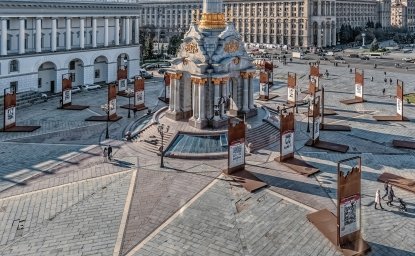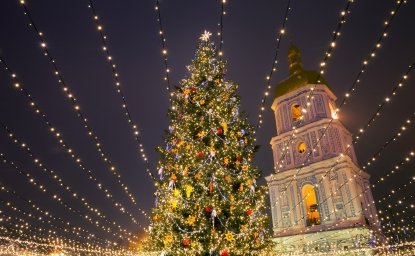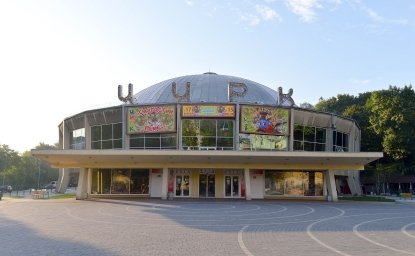
A blog of the Kennan Institute
Giuseppe Verdi’s Messa da Requiem has been performed hundreds—perhaps thousands—of times since is premiere in 1875, when it marked the death of Italian writer and humanist Alessandro Manzoni. Audiences around the world have made this choral mass a go-to score at times of public mourning. Considered by some religious leaders to be too operatic for liturgical settings, the work is well suited for public performances of grief. Only Mozart’s Requiem has been performed more often at such moments.
Verdi’s sublime melodies and dramatic contrasts express the powerful emotions unleashed by death. Potent symbolism has been attached to the score beyond the composer’s lifetime. Prisoners at the Nazi concentration camp of Terezín performed the Requiem some 16 times between 1943 and 1944, under the direction of Rafael Schächter.
The score’s musical and symbolic power made Verdi’s Requiem an appropriate standard for marking Ukraine’s horrendous wounds on the first anniversary of the Russian occupation. The Lviv National Opera performed the work under the direction of Canadian conductor Keri-Lynn Wilson on February 22, for broadcast throughout Ukraine and Europe on February 24. Wilson recently had returned to Ukraine after a worldwide tour conducting the “Ukrainian Freedom Orchestra,” made up of top musicians from the country’s leading orchestras.
The program, titled “In Memory of the Invincible,” also featured a new work by well-known composer Viktoriia Poliova to mark the memory of the victims of the Russian occupation of Bucha. Poliova’s “Bucha. Lacrimosa,” which premiered last autumn, is as understated as Verdi’s Requium is majestic. Hauntingly beautiful, Poliova’s expression of sorrow reveals wounds not yet healed in a moment of quiet reflection about life, which is interrupted by the martial hammering of an advancing army. The exquisite performance of renowned Ukrainian violinist Marko Komonko captured the torment of Bucha’s destruction.
Relatively untouched by the war, Lviv has emerged as a safe haven within Ukraine and a sanctuary for the country’s arts scene. The performance companies affiliated with the Lviv Opera House have been unwavering in their efforts to keep creating for audiences (see the May 24, and December 16, 2022 posts in this blog series). This commemorative performance of the Requiem was made possible by Lviv musicians and renowned opera singers from throughout the country: soprano Sofiia Solovii, mezzo-soprano Anastasiia Polishchuk, tenor Maksym Vorochek, and bass Taras Berezhanskyi.
In his defense of opera in the contemporary world, American composer, conductor, and writer Matthew Aucoin passionately argues in 2021, in The Impossible Art, that the present is “something like a golden age for the art form,” and says he “can’t think of another period in which so many new works that are so different from one another were bursting into the world at once” (page 206).
If the present is indeed a golden age rather than a death watch for opera, it is because, as the musicians of Lviv demonstrate, this kind of choral music has the ability to touch human souls in ways other art forms cannot. Be it with music as well-known and grand as Verdi’s, or as recent and intimate as Poliova’s, Lviv’s “In Memory of the Invincible” concert touches the souls of all who listen.
The opinions expressed in this article are those solely of the author and do not reflect the views of the Kennan Institute.
Author

Former Wilson Center Vice President for Programs (2014-2017); Director of the Comparative Urban Studies Program/Urban Sustainability Laboratory (1992-2017); Director of the Kennan Institute for Advanced Russian Studies (1989-2012) and Director of the Program on Global Sustainability and Resilience (2012-2014)

Kennan Institute
The Kennan Institute is the premier US center for advanced research on Eurasia and the oldest and largest regional program at the Woodrow Wilson International Center for Scholars. The Kennan Institute is committed to improving American understanding of Russia, Ukraine, Central Asia, the South Caucasus, and the surrounding region though research and exchange. Read more

Explore More in Focus Ukraine
Browse Focus Ukraine
Public Trust and Ukraine’s Ideal Postwar Politician

"And I’ll Sing till My Heart Makes a Sound…"

Ukraine Quarterly Digest: October–December 2024

